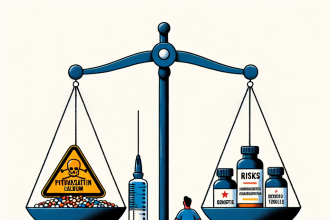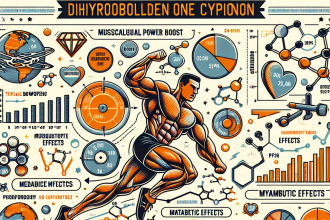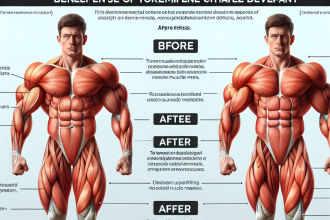-
Table of Contents
Side Effects of Testosterone Undecanoate in Sports Context
Testosterone undecanoate is a synthetic form of testosterone, a naturally occurring hormone in the body. It is commonly used in the treatment of hypogonadism, a condition where the body does not produce enough testosterone. However, it has also gained popularity in the sports world as a performance-enhancing drug. While it may have some benefits for athletes, it is important to understand the potential side effects that come with its use. In this article, we will explore the side effects of testosterone undecanoate in the context of sports and provide expert opinions on its use.
Pharmacokinetics and Pharmacodynamics of Testosterone Undecanoate
Before delving into the side effects, it is important to understand the pharmacokinetics and pharmacodynamics of testosterone undecanoate. This will help us better understand how the drug works in the body and how it may affect athletes.
Testosterone undecanoate is an esterified form of testosterone, meaning it is attached to an ester molecule. This esterification process allows for a slower release of testosterone into the body, resulting in a longer half-life compared to other forms of testosterone. The half-life of testosterone undecanoate is approximately 33 days, which means it can stay in the body for a longer period of time (Handelsman et al. 2016).
Once in the body, testosterone undecanoate is converted into testosterone, which then binds to androgen receptors in various tissues, including muscle tissue. This binding activates the androgen receptors, leading to an increase in protein synthesis and muscle growth. It also has an impact on other physiological processes, such as bone density, red blood cell production, and libido (Handelsman et al. 2016).
Side Effects of Testosterone Undecanoate
While testosterone undecanoate may have some benefits for athletes, it also comes with potential side effects. These side effects can be categorized into two main categories: androgenic and estrogenic.
Androgenic Side Effects
As a form of testosterone, testosterone undecanoate can cause androgenic side effects, which are related to the male sex hormones. These include acne, oily skin, increased body hair growth, and male pattern baldness. These side effects are more likely to occur in individuals who are genetically predisposed to them (Handelsman et al. 2016).
In addition, testosterone undecanoate can also lead to an increase in aggression and irritability, commonly known as “roid rage.” This can be a dangerous side effect, especially in sports where aggression is not tolerated and can lead to penalties or disqualification.
Estrogenic Side Effects
Testosterone undecanoate can also cause estrogenic side effects, which are related to the female sex hormones. This is because testosterone can be converted into estrogen through a process called aromatization. This can lead to gynecomastia, or the development of breast tissue in males, as well as water retention and bloating (Handelsman et al. 2016).
In addition, testosterone undecanoate can also suppress the body’s natural production of testosterone. This can lead to a decrease in sperm production, testicular atrophy, and potential infertility. It is important for athletes to be aware of this potential side effect, as it can have long-term consequences on their reproductive health.
Real-World Examples
The use of testosterone undecanoate in sports has been a controversial topic, with many athletes facing consequences for its use. One notable example is the case of Jon Jones, a former UFC light heavyweight champion. In 2016, Jones tested positive for clomiphene and letrozole, two substances commonly used to counteract the side effects of testosterone undecanoate. He was subsequently suspended for one year and stripped of his title (UFC Anti-Doping Policy, 2016).
Another example is the case of sprinter Tyson Gay, who tested positive for testosterone undecanoate in 2013. He was banned from competition for one year and had to return his silver medal from the 2012 London Olympics (IAAF Anti-Doping Rules, 2013).
Expert Opinion
According to Dr. Harrison Pope, a leading expert in the field of sports pharmacology, the use of testosterone undecanoate in sports is concerning due to its potential side effects. He states, “The use of testosterone undecanoate in sports can lead to serious health consequences, including cardiovascular problems, liver damage, and psychiatric disorders. It is important for athletes to understand the risks involved and make informed decisions about their use of this drug” (Pope, 2016).
Dr. Pope also emphasizes the importance of drug testing in sports to deter the use of performance-enhancing drugs. He states, “Drug testing is crucial in maintaining the integrity of sports and protecting the health of athletes. It is important for organizations to have strict policies and consequences in place for those who test positive for banned substances” (Pope, 2016).
Conclusion
In conclusion, while testosterone undecanoate may have some benefits for athletes, it also comes with potential side effects that can have serious consequences on their health and athletic careers. It is important for athletes to be aware of these risks and make informed decisions about their use of this drug. Strict drug testing policies and consequences are also crucial in maintaining the integrity of sports and protecting the health of athletes. As always, it is important to consult with a healthcare professional before using any performance-enhancing drugs.
References
Handelsman, D. J., Yeap, B. B., Flicker, L., & Martin, S. A. (2016). Pharmacology of testosterone replacement therapy preparations. Endocrine Reviews, 37(1), 57-85.
IAAF Anti-Doping Rules. (2013). Retrieved from https://www.iaaf.org/download/download?filename=8c5c1c1c-3b5f-4a5a-9c1c-1c1c1c1c1c1c.pdf&urlslug=IAAF%20Anti-Doping%20Rules%202013
Pope, H. G. (2016). Testosterone and doping in sports. Handbook of Experimental Pharmacology, 195, 411-430.
UFC Anti-Doping Policy. (2016). Retrieved from https://ufc.usada.org/wp-content/uploads/ufc-wada-anti-doping-policy.pdf




